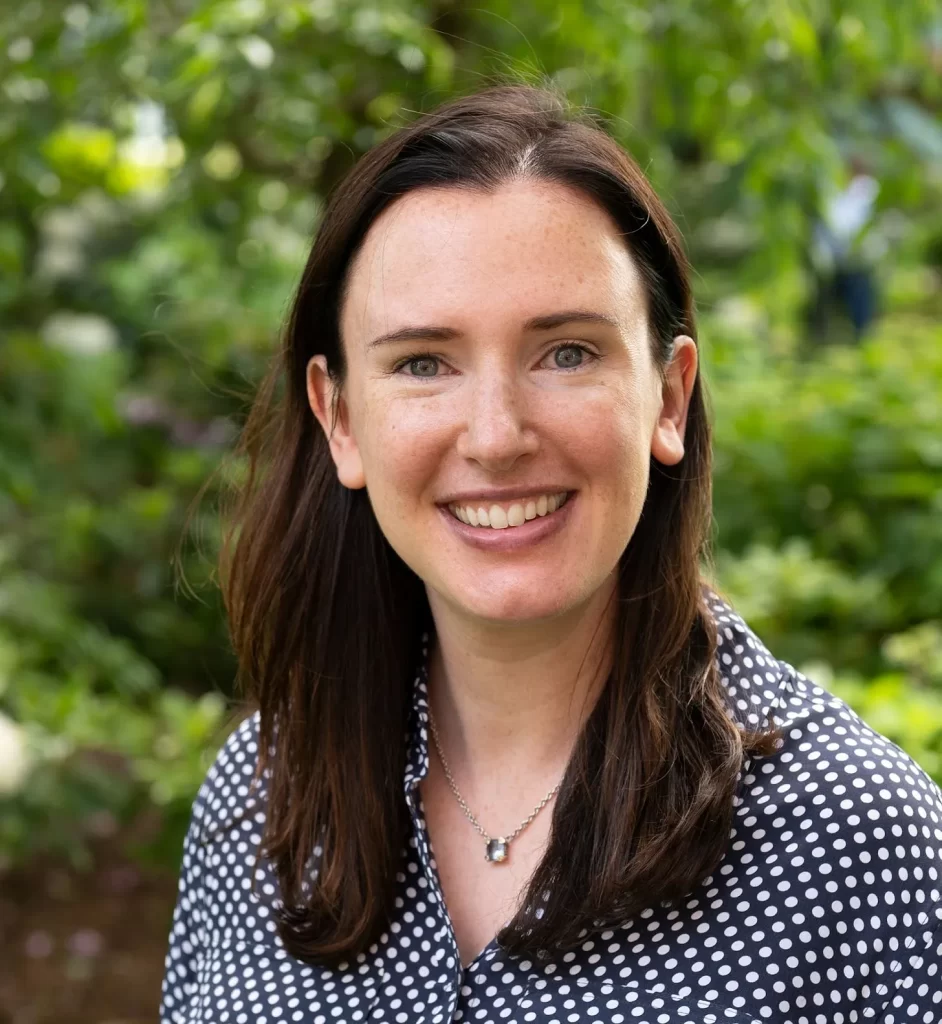
Annie Lindseth is building a career in startups by teaching others how to fly, using her experience managing stakeholders and aptitude for operational rigor as the Chief of Staff at growth stage healthtech startup Connie Health. Annie leverages cross-functional strategic planning & execution skills to help make healthcare more trustworthy for older Americans.
Annie grew up in Princeton, New Jersey and loved attending summer camps on the university campus each year. Startups run in her family too. Both of her parents were entrepreneurs – her dad has been running the same software business for 30+ years and her mom started a college counseling business after she & her siblings got a little older. Her grandfather started a plastics manufacturing business in Ohio, and an aunt, uncle, and cousin have all started their own businesses.
Both parents encouraged their three children to work hard and try new things, all while keeping a sense of humor. When it was time to look for colleges, Annie was ready to try somewhere very different. She was lucky enough to be accepted into Stanford and headed to the west coast. She remembers the optimism of the time, reading about a couple Stanford graduates who started a software company called YouTube that was acquired by another emerging company started by some Stanford alumni: Google.
After graduating with a degree in Environmental Sciences as part of Stanford’s Earth Systems Program, Annie moved to San Francisco where she began commuting back to Silicon Valley for consulting firm LeighFisher. They were a specialized consulting firm focused on the aviation industry, specifically focused on civil aviation & airport planning. She loved the environmental impact of the role and working on cool problems like energy efficiency, writing grants with the FAA to get more electric vehicles in use at airports, and also helping to plan new state of the art airport facilities across the world.
Annie learned how to organize stakeholders who had different goals, bringing constituents together to place runways and terminals. The land side and air side of an airport must be optimized to make the entire airport function as a system. It’s a really cool challenge with a lot of lessons in stakeholder management. Airports are so capital intensive that there are a lot of “one way” doors. Even a good airport planner who knows what needs to change can’t always execute in the near term with projects that might cost $10s or $100s of millions of dollars. She worked on projects in San Francisco, Phoenix’s Sky Harbor airport, Philadelphia, Logan Airport, and international projects in Ecuador & Brazil too.
Ultimately, she knew she didn’t want to be a walking encyclopedia of airport knowledge forever. It was time to look more broadly. Networking throughout the Bay Area, she was encouraged to consider business school. Her boyfriend (now husband) was in biotech, so Boston was at the top of their wishlist. When she was accepted to Harvard Business School, off they went to make their home in Boston!
She admits she felt slightly out of place when she landed in Cambridge. But everyone she met was thoughtful and had different interests. She quickly learned that there is much more than one type of person that attends business school. At HBS, she set out to learn how to use her planning skills in the “build environment” to run construction projects.
One summer, she worked at Facebook helping them build out data centers in their real estate division. But she was wisely counseled by an executive that, if you want to work in real estate, “do it at a real estate company, not a big tech company.”
When Annie graduated, she entered a real estate leadership development program at RMR Group, a large alternative asset manager & operating business here in Boston. At RMR, she got to lean into traditional real estate investing and equity research, including a project on the state of the self storage business. She also helped out on the operations side of the business with a hotel operator, truck stop business, and senior living business.
She loved the operating side of the business and wanted to explore operations more deeply. When Wayfair reached out, she decided to take a chance to join the rapidly growing Boston based e-commerce giant.
Annie was brought on to help lead their expansion into Canada, one of their largest strategic programs, helping reduce costs with cross border shipments & incident prevention. She helped set up a return center in their Toronto warehouse on the eve of Covid, zooming with product & engineering leadership back in Boston as borders began to close.
Next, she took a role to help build out their freight forwarding business – Castlegate Forwarding – moving goods from factories in Asia to distribution centers in the U.S. and Europe. There was a lot of supply chain innovation in the Covid years and focus on supply chain visibility with emerging platforms like Flexport. And it was exciting to run a Strategic Projects team that built out of stock purchasing, created a customs brokerage launch plan, and helped open new facilities while the freight market was growing so fast.
Annie finally led the returns monetization strategy at Wayfair, where her team designed systems to decide how to resell returned items for as much of the original value as possible, leveraging open box ecommerce resale and B2B liquidation sales.
Throughout Annie’s work at Wayfair, she had served in several “Chief of Staff” type roles at the intersection of strategic planning & execution. For her, it’s the perfect mix of strategy and operations. She gets to map the vision, set goals, and then go out & handle the execution. So when Connie Health reached out on LinkedIn leveraging the HBS alumni network, their Chief of Staff role sounded like a perfect opportunity to join a growth stage business where she could be a key piece of their success.
While she didn’t know too much about healthcare, she was excited to join a venture backed company and leverage her well worn strategic planning & project management skills. As Connie Health’s Chief of Staff, she is helping to improve their strategic planning process, scale their operational execution, and help with quarterly planning & goal setting cross functionally.
Connie Health is a growth stage healthtech startup on a mission to make healthcare more trustworthy for older Americans. Annie has loved learning from their amazing executive team in her first true startup role and she appreciates the quick decision making and lack of bureaucracy.
People & Culture Drive Strategic Execution
Annie’s career happiness hinges on people & culture. Before joining Connie Health, she had prioritized working with congenial groups of people. Through the managers she has had in her career (good and bad), she’s developed a strong view of where she fits and how she wants to run teams. It all comes down to strategy & execution.
The opportunity to take something from an idea and then see “boxes coming down the line” gets Annie up in the morning. In order to do this effectively, Annie is very intentional about goal setting. She sets goals backed by as much data as possible so her teams know *exactly* what is needed to reach their goal with flexibility built in to change things on the fly.
For example, at Connie Health, they have an aggressive target for the number of agents they want to hire this upcoming year. Who doesn’t like setting a lofty goal?
Now, all they have to do is go execute!
3 Career Insights / Learnings
Connecting the Dots – “It’s ok to change industries and change your goals because your knowledge and expertise will be more cross-functional than you think. As Steve Jobs once said in his commencement speech at Stanford, ‘you can’t connect the dots looking forward; you can only connect them looking backward.’”
People & Culture Rule – “Increasingly I think people & culture are the most important ingredients for being happy in your career. Early in my career, I really optimized for problems I thought were the ‘most interesting’ and was willing to give up a lot of other things to work on them. I still think that’s important, but the people I work with & the culture I work in have become more important over time.”
Quantifying Career Risk – “The path that looks like a safe path is often riskier than you think. A risky path sometimes isn’t as risky as it seems. In 2024, working at a big company can be risky. Staying at the same job where you’re not learning or growing for too long can be a big risk too.”
Annie would like to continue to serve on startup leadership teams. One day she’d either like to run her own business or perhaps serve as a COO for an organization whose mission she really believes in. She’s really excited about the mission at Connie Health and hopes to stay there for a long time. She loves the rewards of mentoring & coaching and hopes to dig further into the skillset she honed at Wayfair in the coming years.
If you’d like to learn more about Annie, you can find her spending time with her family in and around Boston, digging into the numbers at Connie Health, or on LinkedIn. Thanks for sharing. We’re excited to see the people & cultures you impact in the years ahead!
